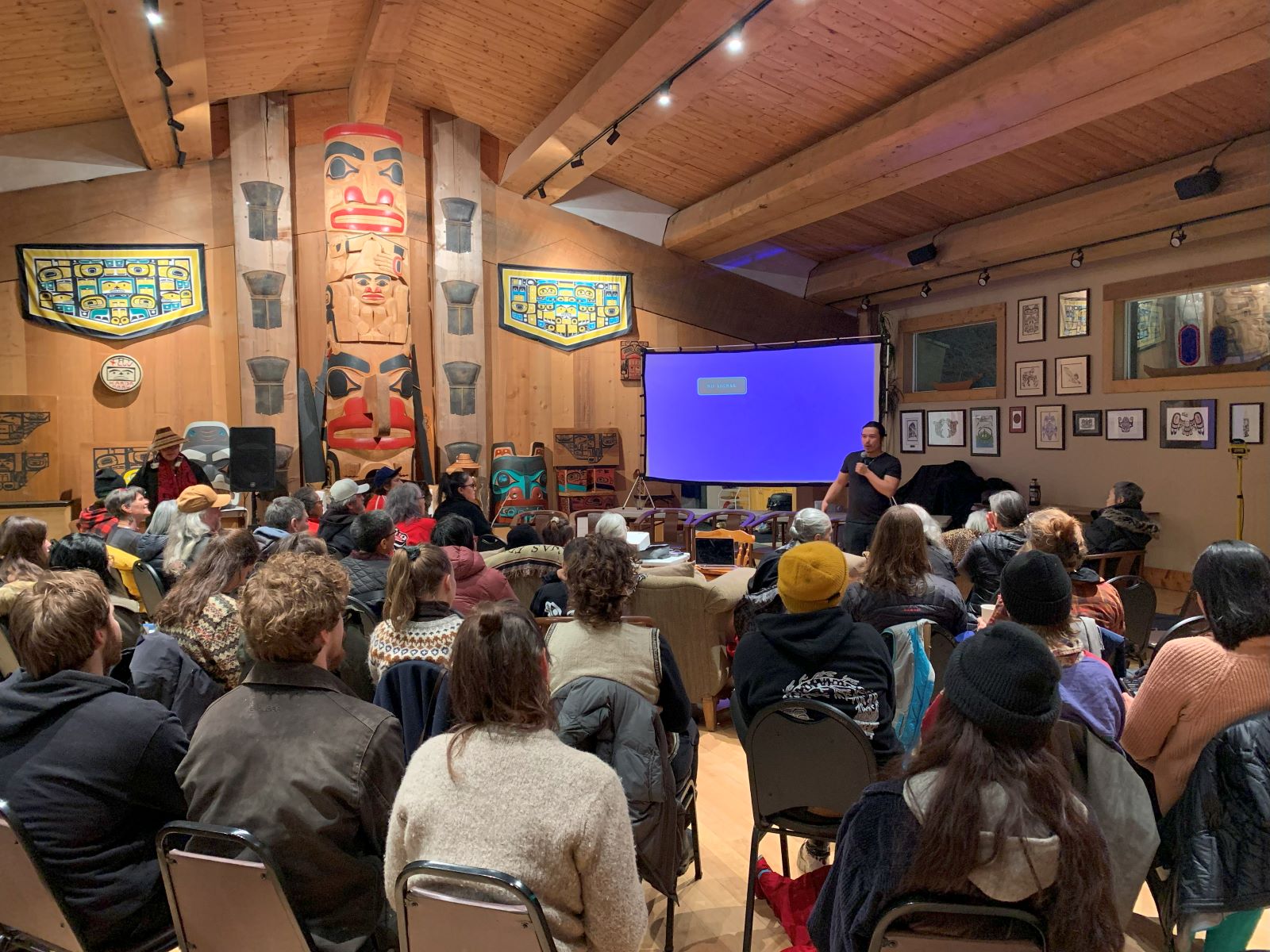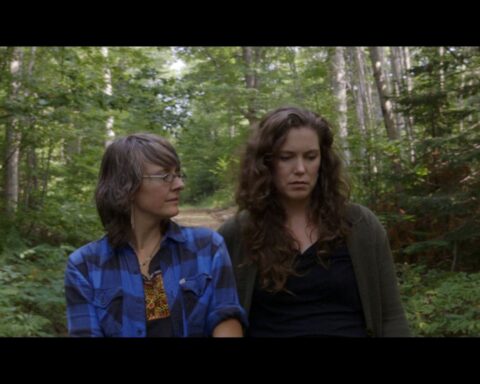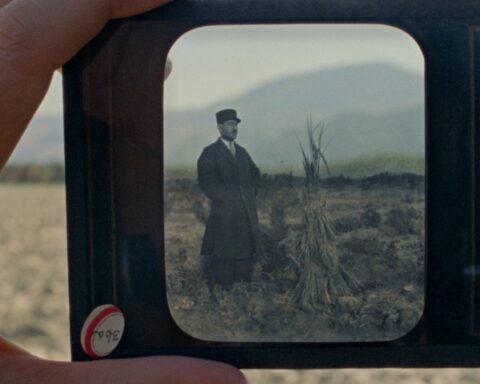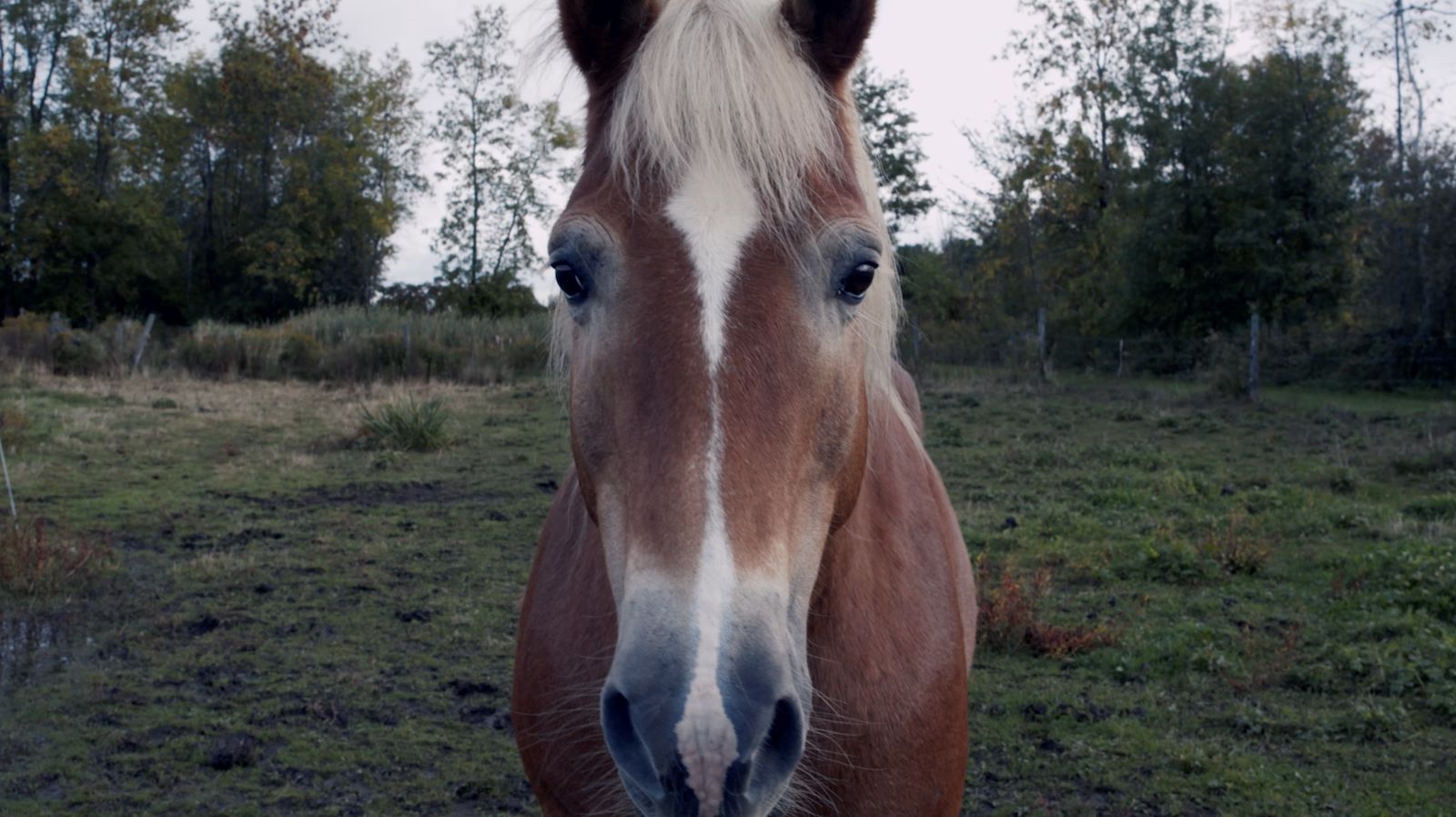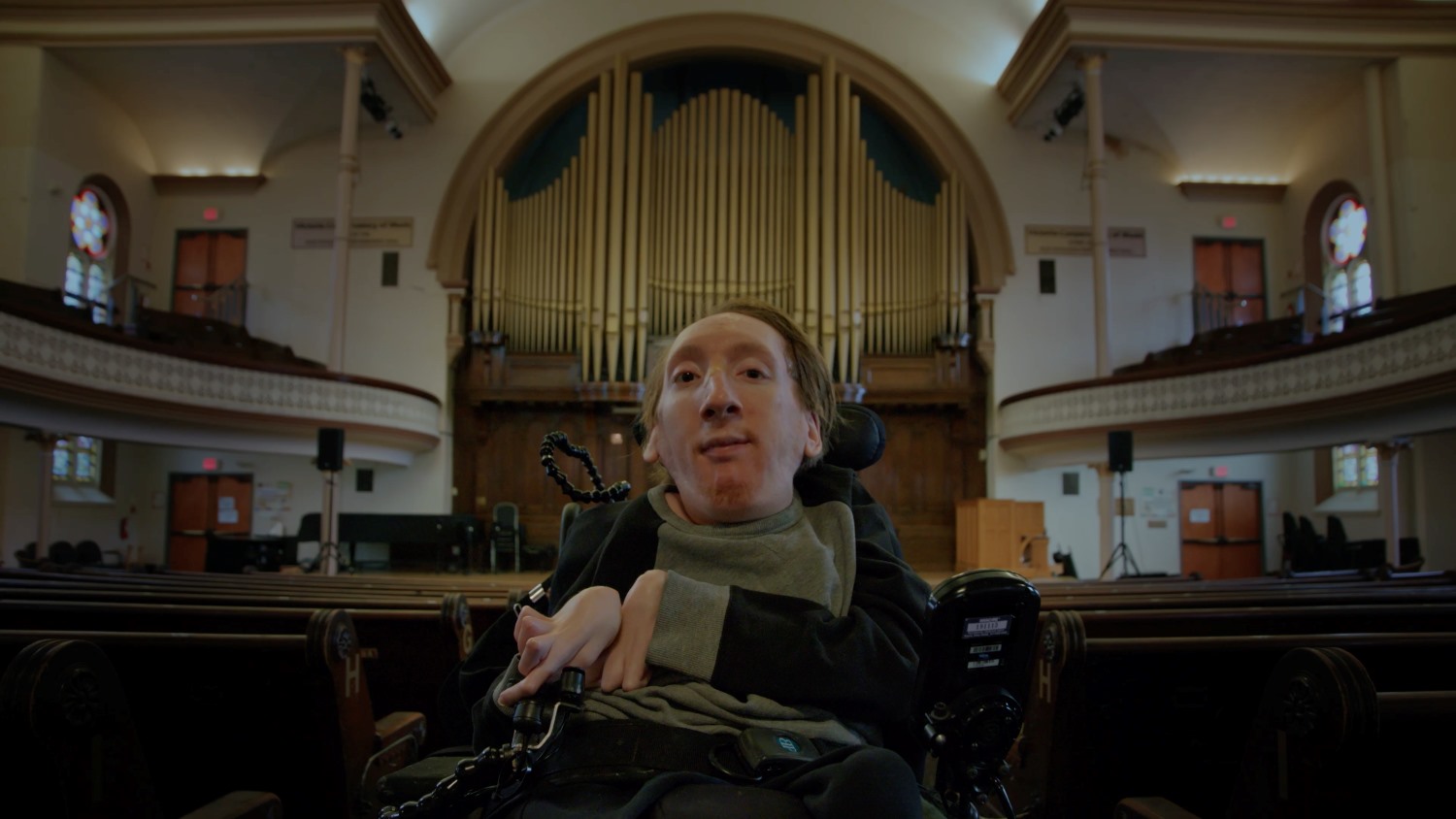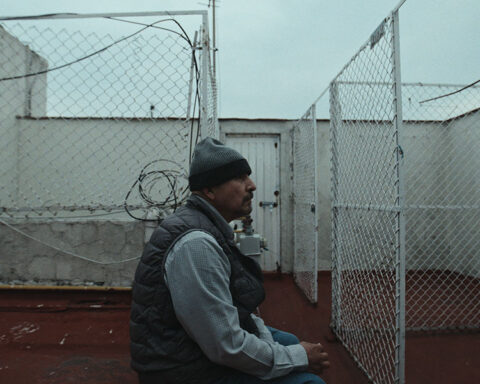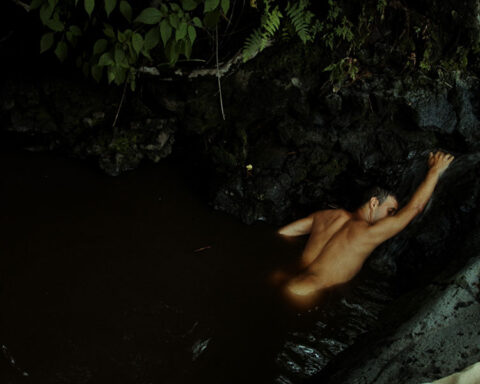Impact producing refers to the work of developing and executing a formalized, strategic campaign to maximize the impact of a documentary. Like impact investing, the intention of which is to create measurable social and environmental change, impact producing has been around for decades, but in the past several years it has become more clearly defined as a practice and field of activity within Canadian documentary filmmaking. During that time, DOC has harnessed the resources and expertise of Canadian experts and agencies to create various reports and toolkits to help its membership learn from and keep pace with the art and practice of impact producing in larger hubs, such as the US and UK. Six years after the publication of DOC’s “Charting a Course for Impact Producing in Canada: Trends, Best Practices and Future Directions,” Canadian impact producers have weathered pandemic challenges and emerged resilient and eager to grow the sector while continuing to put community first.
TAHLTAN TALES
For two weeks in October, filmmaker and impact practitioner Tamo Campos travelled with a group of Tahltan youths and their elders down the watershed in the First Nation’s territory to screen The Klabona Keepers in supporter communities. The film, which opened the 2022 Toronto Human Rights Watch Film Festival and has been in motion ever since, tells the story of the Tahltan matriarchs who led a 15-year resistance campaign to protect the Klabona Sacred Headwaters in northwest BC from industrial activity. After each screening, youths and elders engage audiences in deep conversation. Food is shared, photos are posted, and impact is palpable.
“Some of the youth were super nervous at the first screening, but by the end of the week, they were talking to a crowd of 200 about what the [sacred headwaters] mean to them and what it means to travel with their elders,” says Campos, shortly after coming off the road. “These were some of our best screenings.”
The Klabona Keepers is a collaboration between the non-Indigenous filmmakers Campos and Jasper Snow Rosen and the group of Tahltan elders and Klabona Keepers, including the film’s producer/advisor Rhoda Quock, who invited the filmmakers to make a documentary about the Keepers in 2015. Campos and Snow Rosen had previously filmed blockades to support the community’s land-protection work. “This film is an interesting model in that the main elders who are part of the story own the intellectual property,” Campos continues. “They decided all proceeds should go towards bringing their youth to the land and to screenings.
“Storytelling is a privilege. If we’re trying to create a more just world through films, then we can’t be extractive with the people we’re working with on these stories,” asserts Campos. “It wasn’t our place to benefit financially from a film about an Indigenous land defense where people had sacrificed so much.”
One might assume Campos’ move into documentary was inspired by his mother’s side of the family: His 2020 CBC short Ru-Tsu explores his Japanese ancestry and activist roots through his relationship with his grandfather, scientist–activist and former The Nature of Things host David Suzuki. But it was Campos’ love of outdoor sports, nurtured by his Chilean immigrant father, that led him there. “In my 20s, I was a professional snowboarder, but at a certain point I realized there is more to life than extracting good times in the mountains,” Campos recalls. “I had sponsors and all the things kids look up to, so I felt a responsibility to talk about issues.” He co-founded Beyond Boarding, a non-profit collective that challenges the outdoor sports community on its relationship to the land and environmental and human rights, and started making films to mobilize that community into action—creating impact campaigns while unaware that it was actually an emerging field.
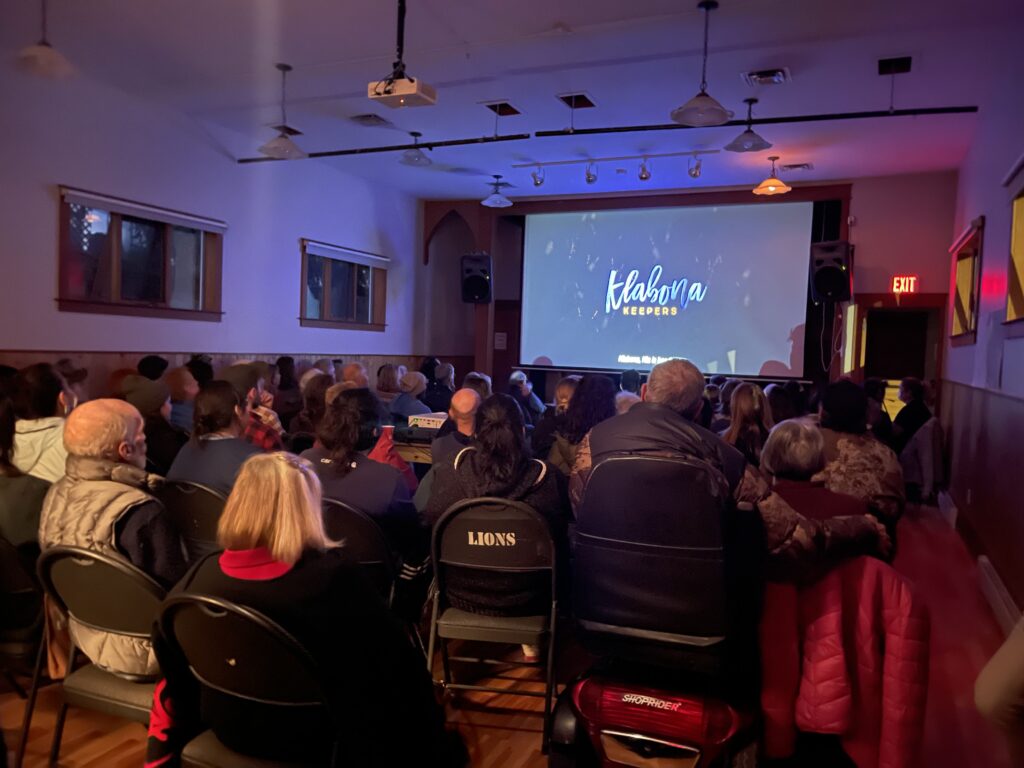
When Klabona Keepers was at the rough-cut stage and the team was starting to envision its distribution path, Campos connected with the BC-based charity Story Money Impact (SMI). Its mission is to maximize the impact of select Canadian environmental and social-issue docs on audiences through a range of custom-designed programs, and to attract public and private financial support to do so. Founded in 2016 by producer Tracey Friesen and now led by executive director Sue Biely, SMI is currently the official producer of the impact campaign for Klabona Keepers and has been involved with it since 2018.
“The partnership came at a great time, and it’s been interesting to connect with [SMI] through both this project and its different programs,” says Campos, who was in the inaugural cohort of SMI’s Pod Program, a six-month, part-time paid opportunity for individuals to learn theory and develop skills in impact producing. He then worked under contract for SMI on campaigns and mentorship, and in early 2022 conducted research for his master’s in environmental studies at York University on action research within the field of impact producing via a partnership with SMI.
“Working with SMI has allowed us to bring the storytellers—elders and youth—to these events, which keeps the focus on those who are responsible for the story,” Campos adds. “In creating these strategies for a film that might change the world, it’s important, for me at least, to ask, ‘Who are we doing this for?’”
SCHECHTER’S CHOICE
“What I’ve learned along the way is that I need to talk to my audience from the beginning. That’s the community I want to develop, that is the community I want to serve, and that’s the community that is going to stick with me from film to film,” says Therese Shechter. The director has made three feminist, comedic, social-issue documentaries through her Brooklyn-based shingle Trixie Films. She recently moved back to her hometown of Toronto and joined DOC to immerse herself in the ways of Canadian doc-making. Although the thematic, geographical, and networking purviews of Shechter and Campos differ, they both initially took an intuitive, self-directed approach to impact work. If they found themselves on an industry panel called, say, “Impact Documentary: Career or Lifestyle Choice?”, they’d have plenty to talk about.
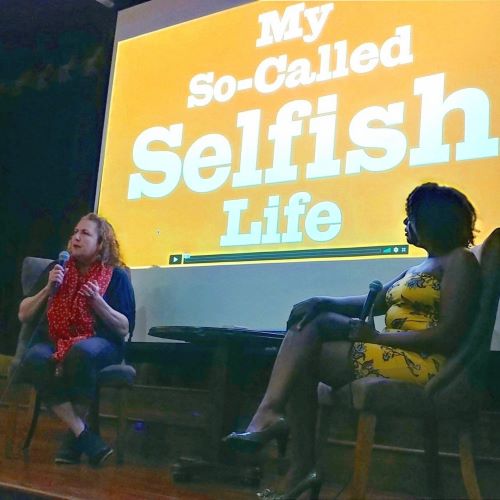
Shechter’s latest, My So-Called Selfish Life, was acquired by the Documentary Channel and broadcast in fall 2022. It’s racked up international sales and continues to circulate via impact outreach and screenings. The film uses personal stories, pop culture, history, and humour to explore the childfree movement—a movement of those who reject social pressures encouraging motherhood—and the societal forces that try to mute its diverse voices. With Shechter’s previous films, How to Lose Your Virginity (2013) and I Was a Teenage Feminist (2005), it forms a sort of trilogy.
“I want to make people a little uncomfortable, but I also want to entertain them and keep the conversation open,” Schechter says. “I find that gatekeepers—grant-givers, programmers, or broadcasters—often don’t want to talk about these taboo subjects. However, my audiences are all over it. That’s been at the core of my outreach and impact from day one.”
Shechter, who is childfree, started thinking about making a film on the subject in 2016 and posted a quick survey on social media. “I wanted to see what other people were going through. It was a straightforward way to accumulate data.” Within a week, she had 1,900 responses; by the second week, it had doubled. She learned how people were dealing with issues of choice and reproductive justice and also assembled a large base audience. She started a monthly newsletter about the project (still ongoing) and used that to find some of her subjects.
“My films have to do with gender expectations and women’s identities. With [So-Called], we developed an impact goal to elevate the voices of the BIPOC and queer communities around reproductive health care and policy and in a historical context.”
While the film hit a few roadblocks—funding gaps and, later, pandemic-related challenges—Shechter sustained the momentum by working with a social-media expert to keep her audience engaged, tapping into her network of experts, and positioning herself in the wider global conversation. UK daily The Guardian, which published a series of articles and op-eds on the childfree movement in 2020, and two pieces on So-Called around the time of its global online premiere run in the spring of 2022.
“When I speak to college students, they ask, ‘When do you think is the right time to build your website? When is the right time to get on social media?’ And I say: Yesterday! As soon as you have a title that you’re willing to put out in the world, you start your campaign. For example, we invited our audience to send in self-shot films, called Selfish Selfies, talking about their personal experiences with not having kids, and they’re featured on the website.
“I wasn’t waiting for a finished film to talk about these issues, we were talking about them throughout the creation of the film.”
PRODUCING FOR AN IMPACT
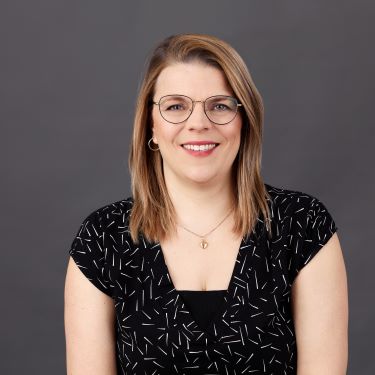
Since 2010, Karine Dubois’ Picbois Productions has been turning out films and series that reflect social and cultural realities in Quebec. The most recent is Essentiels, an investigation led by activist Sonia Djelidi and Le Devoir immigration-beat journalist Sarah R. Champagne into the vulnerability of asylum seekers and temporary workers in the province. The film sold out its public preview screening and high-profile roundtable in early January of 2023, a couple of weeks before its broadcast premiere on Télé-Québec.
“Essentiels made a big impact because the debate in Quebec about immigration is the centre of political discussion right now,” Dubois says. “People debating this subject started quoting the movie, and we also noticed some columnists using our words. For me, that’s a sweet spot; that’s a win, because it means we’ve entered the minds of the people with our angle.
“[There have been] stories about asylum seekers and about the temporary workers in the farms, but nobody was looking at these realities together, in the same space.”
Alone, which looks at three asylum seekers under 18 who arrived in Quebec without their parents, developed an impact campaign that directs viewers to act. The film, which combines live action and animation,screened at festivals across Canada and received four 2022 Prix Gémeaux.
“In the early stage of development, I always ask, ‘Who we are talking to? What effect do we want to have on the public specifically?’” Dubois says. Last year, she explained this process to a journalist in France, who was offended. “It was like I was selling cars. For him it was the worst thing ever, because he felt that [filmmakers] have to create without thinking about anything else. And if you think about the public too early, your film will not reflect your real artistic expression.
“But for me, it’s central to know who we are speaking to,” Dubois continues. “When I created [Picbois] I didn’t want to speak to people who think the same as me. If you want to change the mentality, you must have access to large audiences . . . and you don’t have to compromise the artistic side.”
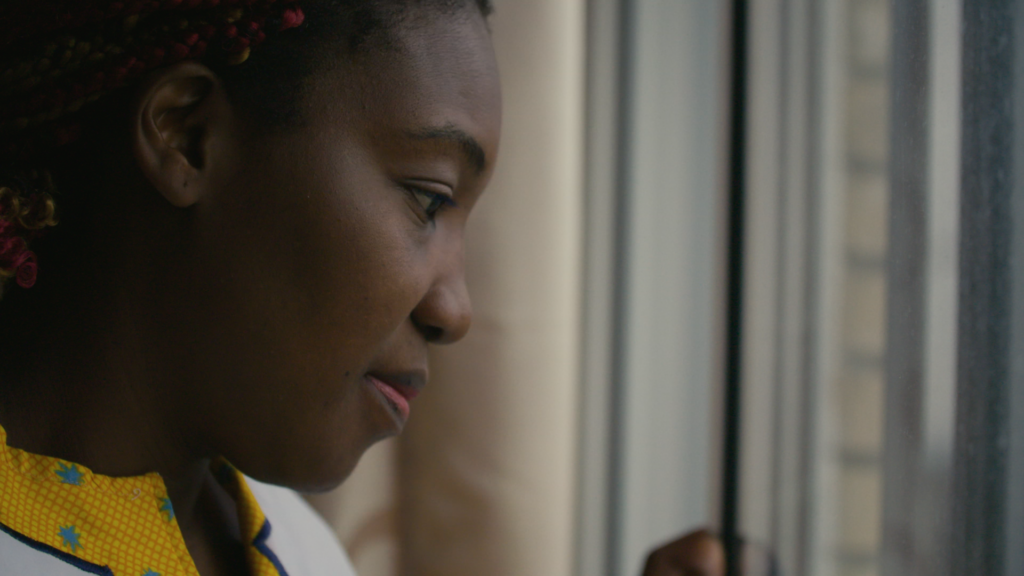
With Essentiels and films of its ilk, people might not like being told they are part of the problem, especially if they feel they are openminded. “They’re going to be angry—you have to think about this so that they won’t just walk away or turn off their TV,” Dubois counsels. “So, for each project, we ask: What does the public not know that you think they must know?”
Un trou dans le temps (2010), one of Picbois’ first films, was about prisoners serving long sentences. The filmmakers wanted it to speak to young people, so focus groups were held at high schools and teenagers were asked what they knew about prison and what they would be curious to know; these questions were used in the discussions with prisoners. Trafic (2019), an impact project about sex exploitation, reveals the perspectives of the girl, the client, and the pimp. “We wanted to show how this system works, and we ended up being part of a parliamentary commission, where we presented the film and made an impact with a message about the need for more sex education in schools,” Dubois explains.
“For me, that is impact producing—we’re doing our documentary work and taking it to another level.”
STORY TO ACTION
“The mechanisms of impact change from region to region, from audience to audience, but also from film to film,” said SMI executive director Sue Biely. Elle-Máijá Tailfeathers’ Kímmapiiyipitssini: The Meaning of Empathy (2021) and Marc Serpa Francoeur and Robinder Uppal’s No Visible Trauma (2020) are perhaps the most recognizable films that have participated in SMI’s Story to Action program, which works with five completed films per year to create an impact. “We ask, ‘Where can this film be leveraged the most?’ And that is the foundation of impact thinking: knowing we don’t have the resources to bring it to every single person in the world and making a strategic choice. Who are we going to bring it to? What are we presenting? How are we educating them?”
For Empathy, which explores the opioid crisis and harm reduction in Kainai First Nation, screenings were held in the white Mormon town across the highway from the reserve. “Within a period of 10 days, 30% of the population watched the film and had access to a conversation, either streamed or in person,” boasts Biely. “Sometimes it’s about engaging the audience and changing their minds about a certain topic that hasn’t been discussed in mainstream conversation. Sometimes it’s about getting them to engage in their own communities.
“Impact work is not propaganda. When we have a room of people who might feel upset but are having discourse, that’s a huge service. The practice of that kind of listening is somewhat radical these days.”
SMI would like to see a space for Canadian impact practitioners to convene. “There’s momentum for people to get together for brain-trust conversations. What needs to happen next? What do we need to ask for from the people who can fund this work? The foundation network in Canada—especially the private foundations—is vast and very much behind closed doors. They don’t know about using film as an engagement tool for change. So, there’s a whole layer of education work that needs to be done.”




